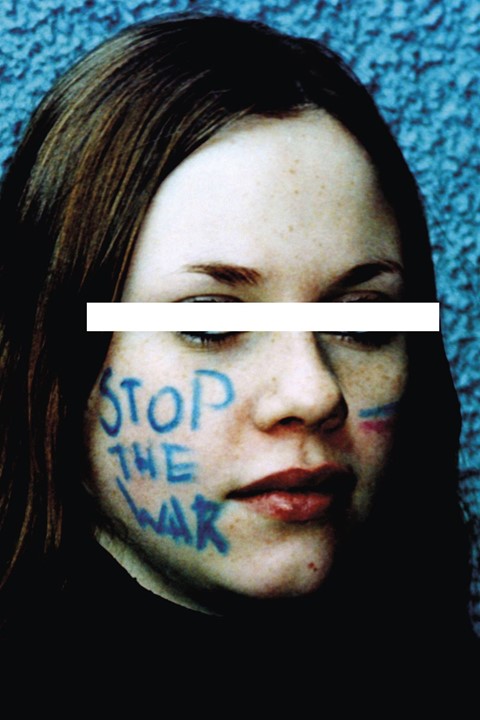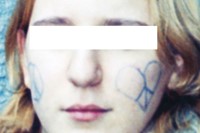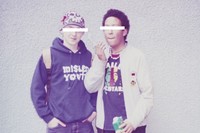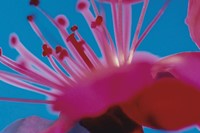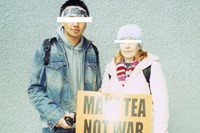Gareth McConnell’s new photo book brings together pictures from Britain’s biggest ever protest, juxtaposed with close-ups of cherry blossom
More than two decades on from London’s 2003 anti-war protest and the legacy of Britain’s biggest demonstration remains elusive. Numbers vary – the highest suggesting nearly two million people attended, while others say less than half that – but what has never been contested is its diversity. In an unprecedented moment of unified outrage, protestors from every background descended on the capital to voice a plea for peace – one which ultimately fell on deaf ears, with the invasion of Iraq beginning just five weeks later.
The Stop, a new photography book by Gareth McConnell with words by Iphgenia Baal, is named after the anti-war campaign group instrumental in organising the march. The publication hints that the legacy of this protest can be found in the march’s youth, who, in Baal’s view, found themselves in a “mid-pivot” of history: “After 9/11. Before the Internet.” Even for someone that has documented youth culture as extensively as McConnell, the space between these global paradigm shifts created something unique, a collective holding of breath before sudden, explosive acceleration.
Shot on a roll and a half of 35mm film that McConnell believed lost for several years after the march, portraits of young protestors with their eyes redacted are interspersed with radiant close-ups of cherry blossom. Flowers have long been part of the photographer’s work, operating as symbols of transience and fragility but also as memento mori; reminiscent of the floral tributes that routinely followed violence during the Troubles in the photographer’s native Northern Ireland. Here, McConnell’s blooms reflect the fleetingness of youth, a beautiful moment now lost, but not quite forgotten.
Below, in his own words, Gareth McConnell talks about the making of The Stop.
“Now we are at a place where protest is being criminalised, reasonable debate seems on the verge of being criminalised. I believe in the right to free assembly, to peaceful protest. If the ‘value’ of the demonstration was in stopping the war, it failed. In terms of a worldwide act of human partnership, culture and solidarity I would say it was not without value. I think people lost faith a little bit in the power of protest after Iraq but in recent years, it seems like there's been a resurgence of people prepared to go out.
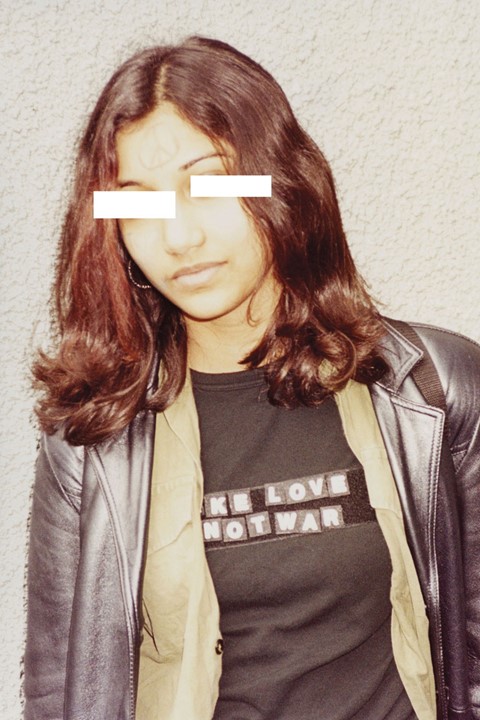
“The march was a really big moment for everyone. More or less everyone I knew was either there or were talking about it. I knew I wanted to go and record it in some way, I wasn’t thinking of any outcome. In regards to [the influence of the Troubles on this project], it’s a big question – it’s complicated. In lots of ways I’m from the wrong side of history in the sense that I grew up in a Protestant, loyalist town in Northern Ireland and it’s taken me a long time to try and unpick that. But there’s still a lot of grey areas. I have some understanding of the perils of ideology.”
“When I first looked at [the photographs], those kids were in their full bloom, it’s such a transient moment. All the flowers pictured in the book are cherry blossoms, which is a well-noted embodiment of mortality, it symbolises both life and death, beauty and violence. So I suppose it was just a kind of mirroring of that life cycle, that hopefully we all have the chance to bloom and to wilt and to fall from the branch and go back into the eternal cycle. But to be able to fulfil that cycle is a great privilege.
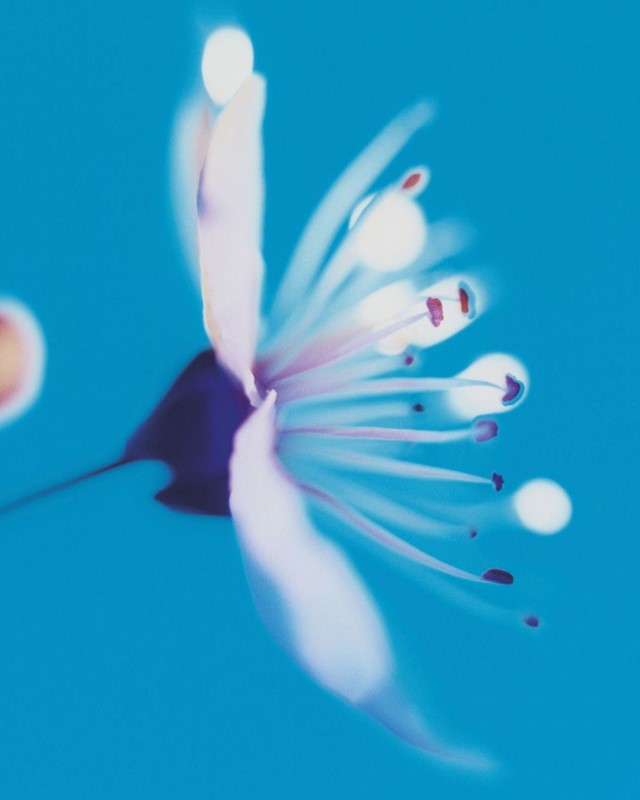
“The decision [to redact their eyes was foremostly about respect for the anonymity of the subject while also alluding to other references such as the photographs you mention of war crimes that were perpetrated in places like Abu Ghraib and Mahmudiyah. It also alludes to our current position, from facial recognition to data theft and spying, biometric whatever-the-fuck they’re doing now, and what that means for our civil liberties.
“I would be very surprised if these photographs made any difference to what anybody thought about anything. Maybe it makes a difference to me, or Iphgenia, or you, the fact we’re having a conversation about it. But you’ve looked at the news and the images on social media. If the horrors we see on there don’t make any difference, then what difference are these going to make? At the end of the day it’s an art project, it’s a piece of work, I don’t have any illusions about it. I believe in the power of art but I am also aware of its limitations.”
The Stop by Gareth McConnell is published by Sorika, and is out now.
